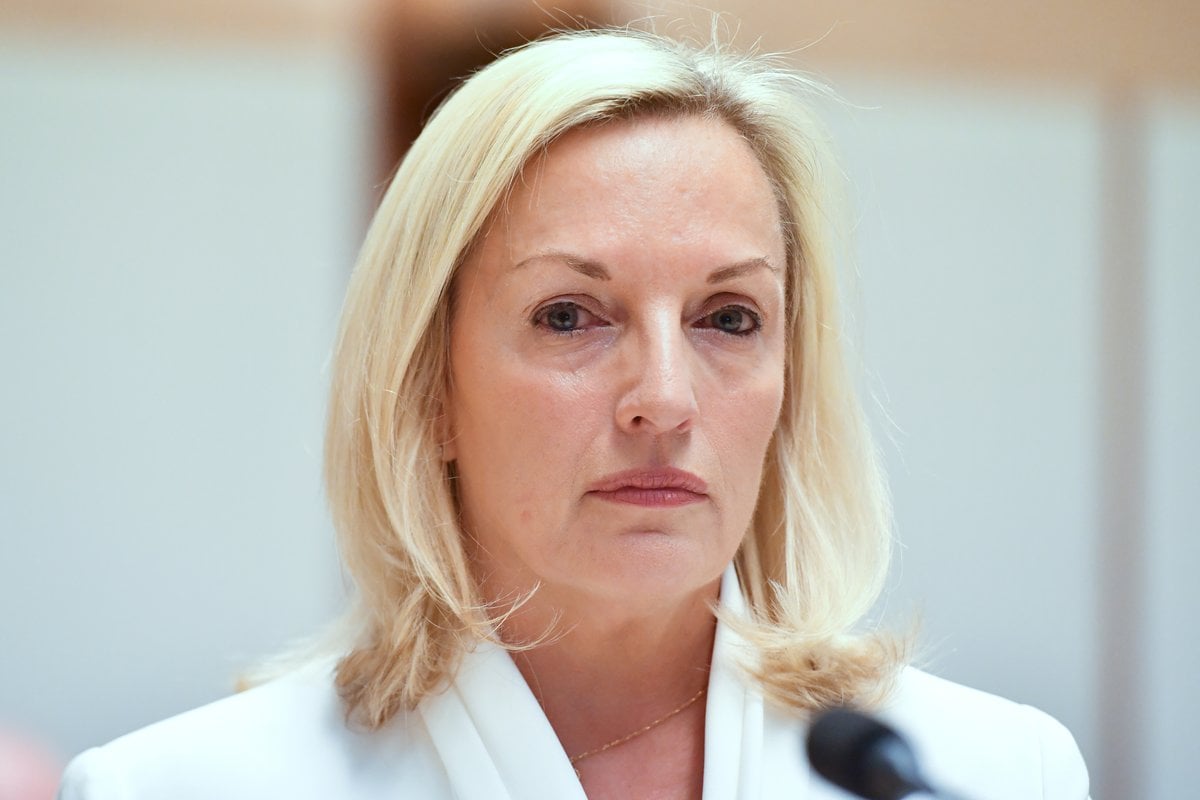
This post mentions suicide and might be triggering for some readers.
Christine Holgate was a shining beacon for female solidarity yesterday.
The former Australia Post CEO wore white, the colour of the suffragette movement, in a senate inquiry where she defended a leadership decision she made three years ago.
It was arguably a nod to the female struggle to break the glass ceiling and a symbol of the importance of women’s rights.
In case you missed it, Christine Holgate was facing questions about her departure from the government-owned corporation. Late last year, it was made public that Ms Holgate gave four Australia Post executives luxury Cartier watches for securing a lucrative deal with three major banks in 2018.
After the purchases were revealed last October, Ms Holgate faced mounting political pressure to resign.
So she did.
But let’s rewind.
In 2017, Christine Holgate became the first female CEO of Australia Post in their more than 200 year history.
Her appointment came after public furore over the salary of the then-chief executive Ahmed Fahour, who was earning an estimated 119 times more than a postal worker. In 2015-16, he pocketed $5.6 million.
Weeks after the controversy, Ahmed Fahour stepped aside, and the first female CEO stepped up. Ms Holgate’s salary, whilst still eye-watering, was substantially less than her predecessor’s. Alas, Ms Holgate’s appointment was rightfully celebrated for her breakthrough of the glass ceiling.


Top Comments